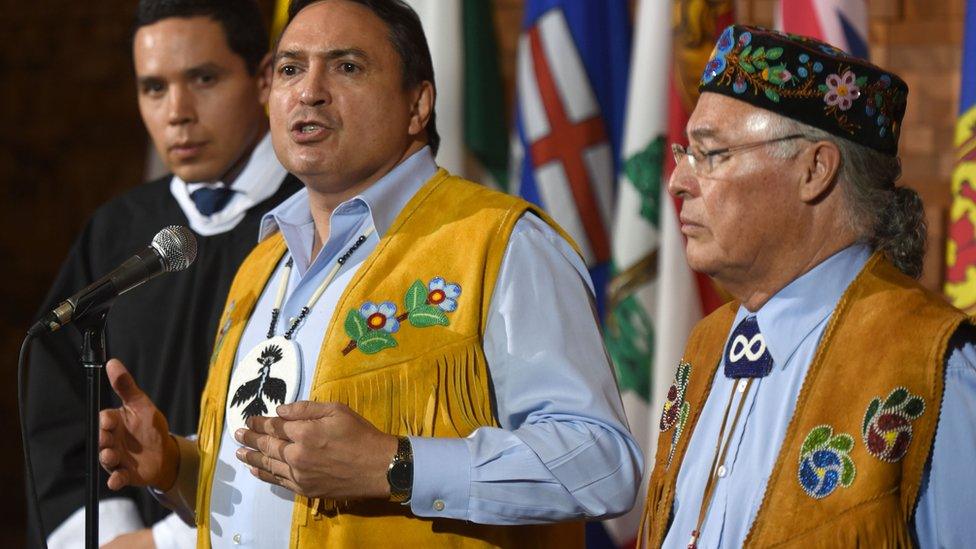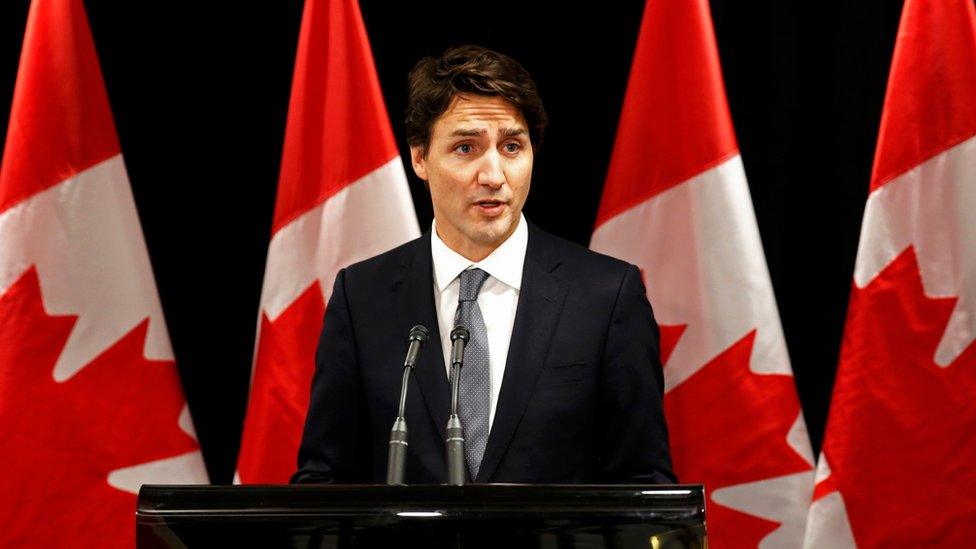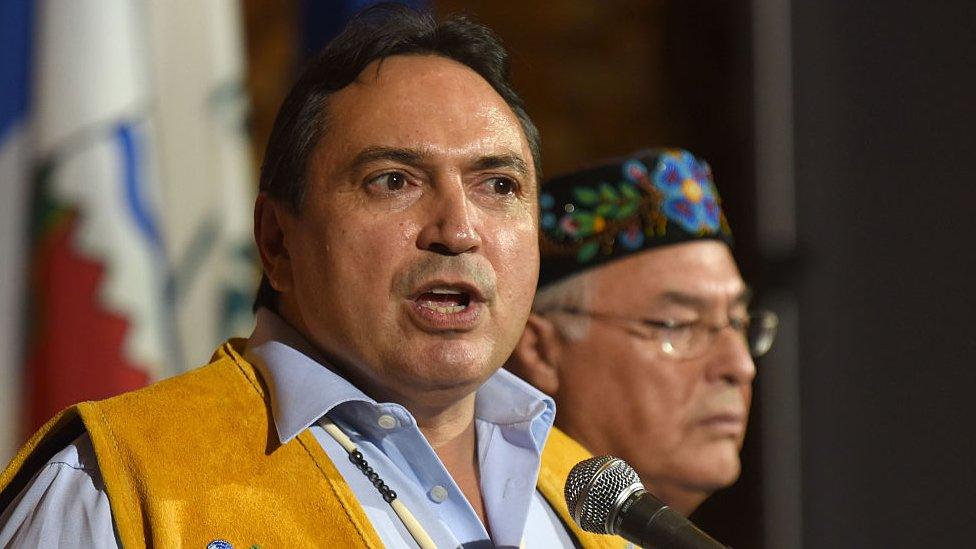Searching for an indigenous-driven approach to suicide prevention
- Published

Assembly of First Nations national chief Perry Bellegarde (C) are calling for more on-reserve healthcare and social services.
How do you stop the indigenous suicide crisis in Canada? Start by listening, community leaders and health workers say.
When Leslie McGregor returned to her home of Whitefish River First Nation to manage the community's health and social services, she knew that preventing suicide would require every trick and tool that she could find.
"This is a big gaping wound," she told the BBC. "We're going to need all sorts of medicine, and it's going to take time to heal it."
With the 2017 federal budget committing $5b (US$3.75b/£3b) for mental-health initiatives, and an additional $828.2 million to improve indigenous health outcomes, health experts are hoping the government will stop prescribing stop-gap measures, and start investing in long-term suicide prevention programmes run by indigenous people themselves.
According to Statistics Canada's Community Health Survey, released Wednesday, indigenous people are twice as likely to contemplate suicide as non-indigenous people, and almost twice as likely to take their own life.
Indigenous people are more likely to experience things like violence, food scarcity and homelessness in their lifetime, which studies show directly impact mental-health, says Gerald McKinley, a professor at Western University.
"Suicide amongst the indigenous population in Canada is not traditional. It's something that is a direct result of colonisation," he told the BBC.
One of the biggest challenges of preventing suicide in communities with a history of suicide is the exposure effect. Losing a loved one to suicide increases your risk of suicide for up to a year, says Jack Hicks, who helped draft the Nunavut Suicide Prevention Strategy.
If a few people die each year, as they have been in places like Attawapiskat and Wapekeka, the trauma can ripple throughout the community for years.
"It's like a poison has been unleashed in society, and no matter how aggressively we try and get it back, it's going to take time," he says.
He says the government must make long-term investments in indigenous health.
Few communities have full-time staff devoted to suicide prevention, and often people have to be flown to a city to access mental-health services, sometimes hours away from family and friends.
Dr Michael Kirlew is a family practitioner in Sioux Lookout, Ontario. His practice covers an area the size of France. He says he struggles to reconcile Canadian values of inclusivity with the inequality he sees day-to-day.
"One of the most difficult things I've found in medicine is not when you can't do something," he said. "It's when you can do something, and you can do interventions, but bureaucracy holds you back."
He says he's seen good results from programmes that combine traditional indigenous culture with more standard mental-health treatments.

In 2016, the indigenous community of Attawapiskat declared a state of emergency due to youth suicides.
It's an approach adopted by Ms McGregor. Working alongside Prof McKinley, she's trying to create programmes that combine indigenous spirituality with health and social sciences.
Youth kill themselves because they feel hopeless, she says. In order to prevent suicide, we must give them hope.
"I don't know why I'm here. If I don't know my purpose here, then what am I doing here?" are questions they often ask her.
When Ms McGregor presented her idea to build a community garden to tribal council, she was initially met with skepticism, she says, but reconnecting with the land can positively impact youth.
"Youth in general, especially with technology, they want things right away."
By learning to nurture a plant, they're learning that even if things are dark now, spring will come.
"What it does it helps move them from harm, to care," she says.
Where to get help
If you are depressed and need to ask for help, there's advice on who to contact at BBC Advice.
From Canada or US: If you're in an emergency, please call 911. If you or someone you know is suffering with mental-health issues, call Kids Help Phone at 1-800-668-6868. If you're in the US, you can text HOME to 741741
From UK: Call Samaritans on 116123 or Childline on 0800 1111
- Published11 April 2016

- Published26 January 2017
